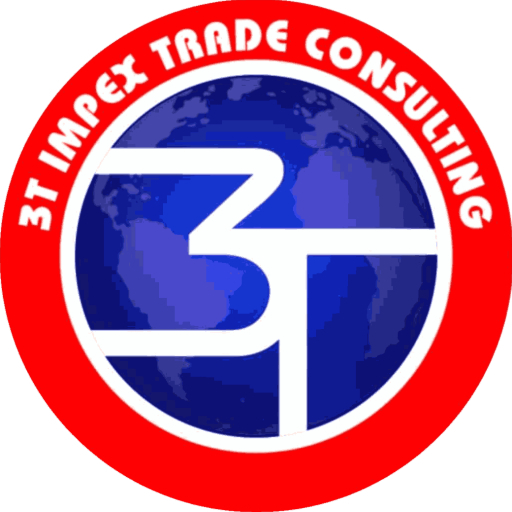OVERVIEW OF ANGOLA
Angola has a population of about 32 million and it is the seventh-largest country in Africa in terms of land mass. It is the tenth-largest economy in Africa, and it is classified as a lower-middle-income country. It is located in the South African region, surrounded by countries like DR Congo, Zambia and Namibia. The sales of crude oil and its derivatives account for over 80% of its export revenue. Angola is among the Southern African Development Community (SADC) countries. The market opportunities and the demographics of the country have made this African market to become a place to explore by African exporters under AfCFTA.

Image source: istock.com
ECONOMIC SNAPSHOTS
Angola has a coastline of 1,600km and is a predominantly Roman Catholic and Protestant country. Portuguese is the official language, Umbundu and Kikongo are other languages spoken in the country. It is a lower middle-income country with a per capita income of about $3,038 (2019 est.).
The GDP was about $62.31 billion in 2020, 80% was attributed to household consumption. Services contributed 46.8% of the GDP while agriculture and industry contributed 10% and 42.2% respectively (2017). The inflation rate is 15% (2020 est.), the literacy rate is 71.1%, while 66.47% of the country’s population is between 1-24 years of age.
The major agricultural products produced in Angola include Banana, Sugarcane, Coffee, Corn, Cotton, Cassava, Tobacco and Livestock while the industries in the country produce Petroleum, Cement, Metal products, Brewing, Tobacco products, Sugar, and Textiles.
MARKET CHALLENGES
Angola is a very difficult place to do business, going by the ranking in the ease of doing business index. Hence, to be successful, a strong local partner is highly recommended, coupled with time and commitment.
The challenges that any company that wants to do business in Angola and many African countries will need to contend with include protracted delays in customs clearance, and language barriers (Portuguese-English translators are needed in the case of Angola).
Some of the business challenges that are very peculiar to operating in the Angola markets include: Poor road infrastructure, the country is ranked low in access to credit, enforcing contracts, registering properties, and resolving insolvency. Transparency International ranked Angola low on its corruption perception index (165 of 180 in 2018).
MARKET OPPORTUNITIES
Despite the challenges that confront a business operating in Angola, there are lots of opportunities that can be explored by Nigerian businesses in this export market. These include the huge demand for services in the transportation sector, business services, construction, financial and insurance services and personal travel. There is also a huge opportunity in Angola for exporters who are interested in selling different manufactured goods in the Angola market. Some of the Nigerian processed Agro and manufactured products with humongous demands that are worth billions and millions of dollars in the Angola market include vegetable products, foodstuff, mineral products, paper goods, wood products, rubber and leather footwear, animal products, precious metals etc. For investments in electricity and water, tourism and hospitality, transportation and logistics, telecommunications and information technology, construction and media, the 35% local content/partnership is no longer compulsory.
MARKET ENTRY
Angola offers medium to long-term business opportunities for exporters focused on the top prospect sectors. Given the challenges in the business environment and the consistent attention
needed to develop a market presence, companies should consider the necessary time and financial commitments required to succeed in Angola. The long-established presence of Portuguese companies in Angola provides opportunities for collaboration. Also, a financially strong business partner who is knowledgeable in local business procedures and well-connected to target highly established businesses. The use of agents and distributors when establishing a new business in Angola.
IMPORT DOCUMENTATIONS
Documents to import requirements vary depending on the type of goods imported. In general, importers must submit an invoice, bill of lading (B/L), inspection certificate, the importer’s import license, attestation of origin of the goods, and an animal or plant health inspection certificate before clearing goods. An importer is to engage customs-registered clearing agents to clear goods. All required documents are handled by such agents. The following goods are prohibited for imports into Angola, they include animals and animal by-products originating from areas affected by epizootic diseases, plants originating from areas affected by epiphytic diseases, some distilled beverages, counterfeit goods, pornography, roulette and other gambling machines, passenger vehicles over 6 years from manufacture date, industrial vehicles over 10 years from manufacture date, transgenic grain, and seeds.
SELLING FACTORS
The Angola economy does not have an adequately developed system of distribution, having gone through a civil war 17 years ago. Finding a Distributor or an Agent in Angola is one of the best ways to do business in Angola, this is due to their ability to handle business development across the country.
The selected local partner should be of a strong financial standing, have the capacity to stock inventories and after-market parts, and be able to provide technical support for the specific product. Another good quality the local partner should have is the ability to navigate complex import processes and demonstrate strong existing end-user client ties, especially if the target client is the government of Angola. The causative factor for the high market prices is the inflation figures. The central bank of Angola via its monetary policy is seeking to quell the effect of the inflation trends on the economy. The result is a steady decline in inflation figures from 23%(2017) to 16.9% (2019).
Some of the Nigerian processed Agro and manufactured products with humongous demands that are worth billions and millions of dollars in the Angola market include vegetable products, foodstuff, mineral products, paper goods, wood…
PAYMENT & EXCHANGE
Generally, Exporters have experienced few problems in getting payment from Angola companies, this is due to the scarcity of foreign exchange in the country. In June 2018, the Central Bank of Angola announced that letters of credit would be the preferred financial instrument for import and export transactions and that letters of credit would be mandatory for transactions over 100.000 Euros. Despite the guarantee offered by a letter of credit, higher cost and a 3-4 month lead time have been a major frustration for most importers.
BUSINESS CULTURE
A simple handshake is very common during greeting. It is best to slightly bow your head when greeting an older person or someone of a higher position. There might be a first and a second meeting. The first is generally held to get to know you better, it would be wise to avoid setting an agenda for the meetings. Women are not expected to look directly into the eyes of the other person, though this does not apply so much to younger Angolans who live in the cities.
When addressing government officials, it is better to address them as “Excellency” or “Excelencia” without using their surname.
IN CONCLUSION
The Angola market offers a great opportunity for African businesses to sell their products and services under the AfCFTA.
However, any business looking to enter this market must be ready to make a capital commitment and invest time and effort in making it a success. It is also important to put the necessary structure in place to mitigate the risks posed by the challenges in this market. This is why sourcing for a local partner and doing due diligence before engaging them becomes extremely important.
Finally, exploring avenues that allow an exporter to showcase the value of its products or services in this export market through channels like social media and billboard Ads and other mass media platforms like radio or television should be explored.


